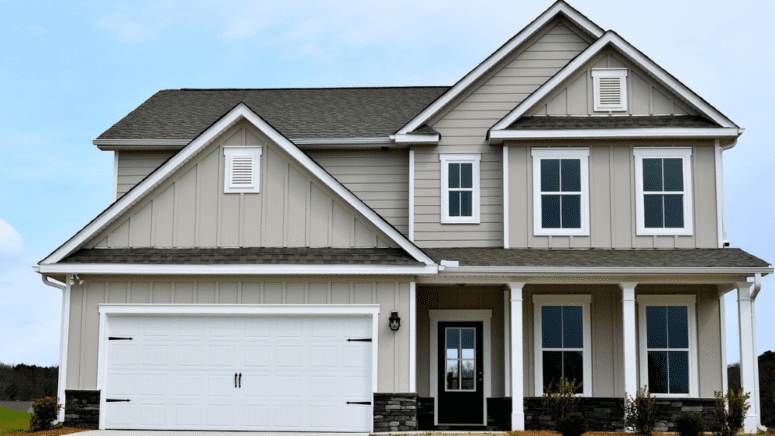How FHA Down Payment Assistance Works, Nationally and State By State
- Published on
- 8 min read
-
Alesandra Dubin, Contributing AuthorCloseAlesandra Dubin Contributing Author
Alesandra Dubin is a lifestyle journalist and content marketing writer based in Los Angeles. Her vertical specialties include real estate; travel; health and wellness; meetings and events; and parenting. Her work has appeared in Business Insider, Good Housekeeping, TODAY, E!, Parents, and countless other outlets. She holds a master's degree in journalism from NYU.
-
Jedda Fernandez, Associate EditorCloseJedda Fernandez Associate Editor
Jedda Fernandez is an associate editor for HomeLight's Resource Centers with more than five years of editorial experience in the real estate industry.
It can be daunting to know how and when to leap into homeownership — especially if you don’t have substantial savings for a down payment. Worried you simply won’t be able to afford it?
If this sounds like you, you might have heard about special programs that help you get your foot in the homeownership door. You just need to learn more about what they are — and where you can find them.
If you’re a first-time homebuyer, you might qualify for down payment assistance provided through a government agency or private organization.
Here, we’ll walk you through one of the best-known and most widely utilized tools that can help get you those keys: the FHA loan. Read on for more about these loans, the down payment assistance programs associated with them, and some different down payment assistance programs to consider when you buy your first home.
What’s an FHA loan?
Let’s start with the basics: FHA loans are loans that are backed by the US Department of Housing and Urban Development’s Federal Housing Administration (FHA). They must be issued by an FHA-approved lender — and there are many of these out there.
If a buyer with an FHA loan stops making payments on the home loan, and the house goes into foreclosure, the FHA will take responsibility, thus protecting some of the lender’s loss. This extra degree of protection encourages lenders to offer loans to borrowers with lower credit scores and lower down payment amounts. (Plus, with FHA, your entire down payment can be a gift from an eligible source like family.) And when lending standards are less stringent, more buyers get the opportunity to enter into homeownership.
When it comes to the actual FHA loan, “Typically, there are stricter standards for the house itself,” adds top-selling agent Rodney Moser, who sells properties more than 40% quicker than the average Salt Lake City agent. “So they may go through a more stringent appraisal review on the property to make sure that there aren’t major maintenance issues that would have to be taken care of.”
But jumping through hoops like these can be well worth it for certain buyers seeking to obtain FHA loans. Where a conventional production might require a 620 credit score, FHA only requires 580. The actual minimum credit score allowed can depend on your lender, so it makes sense to shop around.
With an FHA loan, you will pay a 1.75% upfront mortgage insurance premium (MIP) on your loan. And if you don’t put at least 10% down, you’ll pay MIP over the entire life of the loan, even after you hit 20% equity. These are good reasons to consider down payment assistance.
What is FHA down payment assistance?
These programs are specifically designed to help you pay for the down payment, and most can be used with an FHA loan. They come in two types: loans and grants. Here’s how they compare.
Down payment grants
Grants do not typically have to be paid back, though certain conditions may have to be met before you can access the money. For instance, a program might require you to attend a class that might take anywhere from four to 16 hours of your time.
Matched savings
Matched savings programs are a form of a grant. The entity will match up to a certain amount (usually 10% or less of the home’s purchase price), so you can essentially double your money with this type of assistance.
FHA down payment assistance grants vary per state. You may visit the FHA website to see your options, such as the MyHome Assistance Program for homebuyers in California, Head Start To HOME Ownership Program for homebuyers in Florida, and the NY State Association of Realtors Housing Opportunities Foundation for homebuyers in New York.
Loans
Down payment assistance loans, unlike grants, must typically be paid back. However, they can offer favorable borrower terms and conditions.
There are also forgivable loan options, provided to meet all the criteria for the loan to be forgiven, which may include staying in the home for a certain number of years.
Second mortgages
Many loans are technically second mortgages, and these come in three standard flavors:
- A second mortgage (second secured loan that uses your house as the collateral) will have to be paid off alongside your first mortgage.
- Deferred second mortgages will need to be repaid when you move, sell the house, or refinance your mortgage.
- Forgivable second mortgages will be dropped if you stay in the home for a set number of years and make all your mortgage payments on time.
Where can you get FHA down payment assistance?
If you’re considering using down payment assistance with your FHA loan, you’ll need to know where to look. This breakdown of programs available on the state and national levels will get you started (so you may want to bookmark it!).
The Chenoa Fund
This national program is suitable for creditworthy, low- and moderate-income buyers. The Chenoa Fund offers either 3.5% or 5% of the down payment needed to purchase a home with an FHA loan. You are eligible with a credit score of 600 or higher.
This type of loan is a forgivable second mortgage that disappears after three years (that is, 36 months) of consecutive on-time payments. The clock resets after a late payment, but the borrower has the full 30-year term to meet the conditions.
State, county, and city programs
“Down payment assistance programs are often city by city, state by state, or location by location, so it’s really a hyper-local product,” Moser explains.
“Sometimes there are areas that are doing rehabilitation in parts of the city where the city will give you a grant that doesn’t have to be paid as long as you lived there for a certain period of time — and every one of those local programs can be different.”
Indeed, depending on where you live, you could be eligible for several down payment assistance programs specific to your local region. These resources can help as you hunt for them.
HUD directory
HUD has an online database of housing assistance programs by state (so you can start searching from your desk right now). Visit the site, click on your state, and easily pull up down payment assistance programs that may be available in your area.
Internet search
How did you turn up this page that you’re reading right now? Chances are you reached it through an internet search. Keep searching and you’re likely to turn up resources at the county, city, and state level — if you know how to look.
For example, searching for “Atlanta down payment assistance” quickly leads to Invest Atlanta, the official economic development authority for the City of Atlanta. That platform offers an at-a-glance breakdown of multiple programs, including the Intown Mortgage Assistance Program (IMAP), through which homebuyers can receive up to $20,000 toward the down payment and/or closing costs — an amount that is fully forgiven after the buyer lives in the home for five years.
Citing his local market, Moser says, “You can Google ‘down payment assistance programs in Salt Lake County,’ and there is a local nonprofit organization that runs a lot of those that can point you in the direction of four or five different products that you can get — you might be able to get 3% from this product; you might be able to get a thousand dollars more from this one.”
Local lenders
Other potential sources include local and state government agencies, employers, and lenders. In fact, “lenders are usually your best source for finding local products, local programs,” Moser says. “They’re going to know a lot of them.”
Remember that not all lenders are going to be the best choice if you’re using an FHA loan and down payment assistance programs. So you’ll want to choose your lender based on your specific needs.
Experienced local agents
An experienced local real estate agent can help shepherd you through the FHA loan and down payment assistance process seamlessly and successfully. “If you’re not working with somebody who knows the market, who has relationships,” Moser says, “that can have a major impact at the closing table.”
Further, he says, “FHA products can vary by location, and if you have an agent who doesn’t understand that, they may be showing you properties that waste your time.”
Overall, Moser’s best advice is to work all your angles to leverage whatever down payment assistance programs you qualify for, so you can get into the market and start building equity today.
“In the lower price ranges, we’ve had almost a 15% appreciation,” he says of his local real estate market. Perhaps you’re not certain whether you have enough money saved up to start looking for a house, but you might be pleasantly surprised by how far your savings can stretch when paired with down payment assistance.
Header Image Source: (paulbr75/ Pixabay)






